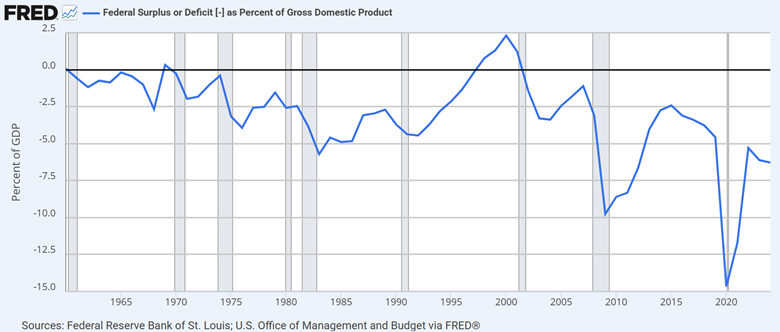Written by: Tim Pierotti
“We expect federal deficits to widen, reaching nearly 9% of GDP by 2035, up from 6.4% in 2024, driven mainly by increased interest payments on debt, rising entitlement spending, and relatively low revenue generation. We anticipate that the federal debt burden will rise to about 134% of GDP by 2035, compared to 98% in 2024.” Moody’s Friday May 16th

Many years ago, when I was an analyst covering consumer stocks, one of my favorite CEO’s was the brilliant but controversial Reuben Mark at Colgate. The beauty of Colgate was (and is) their dominant market share in emerging markets from India to Venezuela. Reuben loved to dramatically recite a fable of a man who approached the castle and manicured grounds of a royal family. The man asked one of the family members how he had managed to create such a perfectly smooth lawn. The reply from the princely resident was, “It’s easy, all you have to do is aerate and roll the grass in the spring and fall every year for 200 years.” His point was that Colgate’s market share was built over many years and no competitor could threaten that share without decades of work and investment.
But it is also true that a beautiful smooth lawn many years in the making can be destroyed far more quickly. The US economy is the castle and grounds of the world’s envy. We have many, if not still most, of the world’s great universities, the greatest global companies from Apple and Microsoft to Coca-Cola and Disney, and the most liquid and most attractive safe-haven capital markets in the world. My guess is that ten years from now, that will all still be true. But as the quote above from Moody’s illustrates, we are losing the ability to responsibly govern our fiscal affairs. It has become impossible for the party in power to sacrifice their collective political future for the sake of lowering deficits below the rate of growth. The key point to understand is that our slide into governmental ineptitude has very real economic and market ramifications.
It is not a coincidence that Moody’s chose now to make their downgrade. All indications are that the current reconciliation bill, in its various bicameral forms, is going to be profoundly deficit additive. While the markets have taken the downgrade in stride, the move will highlight the importance of the pending tax and spending package. All eyes will be on Congress and our waning fiscal credibility.
In 2023, we published a white paper titled “Deficits, Populism and Higher Rates”, which discusses all facets of the risk posed from losing our credibility as a functional Democracy. We analyze gerrymandering, the rise of populism globally, our societal bifurcation along political lines, and the concept that “deficits don’t really matter”.
Please take a few minutes to get a better understanding of the critical intersection of the global economy and the effectiveness of American Democracy.
Related: Why Housing is the First Step to Real H.O.P.E. and Lasting Change


